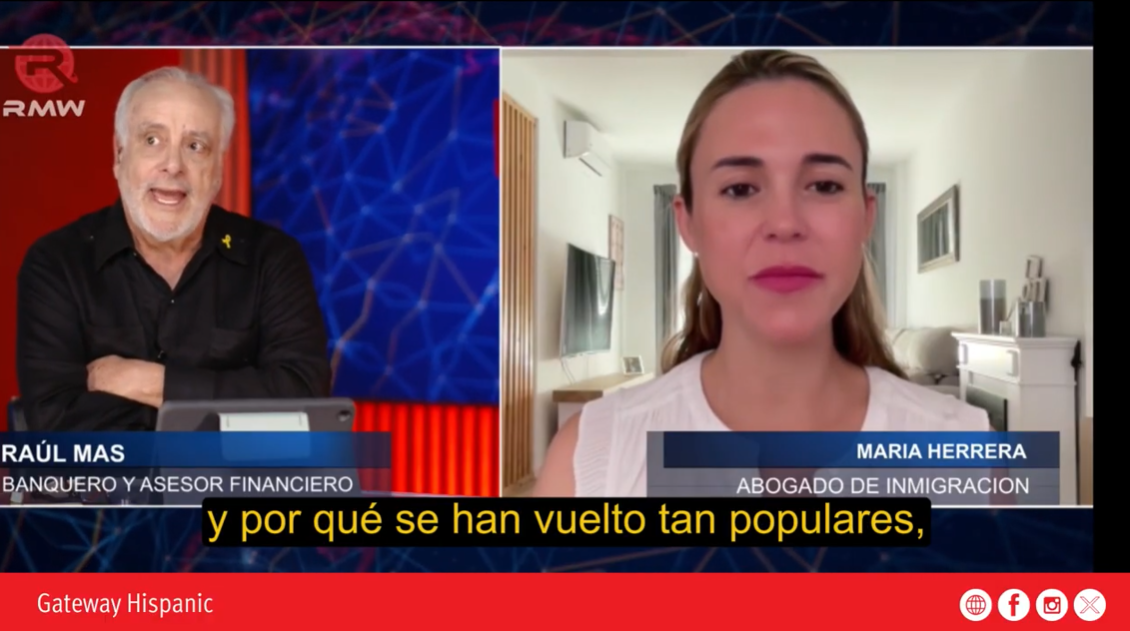What You Need to Know About the H1B Visa Program in the U.S. - Gateway Hispanic

In a recent interview with Dinero y Mas, interviewer Raúl Mas spoke with attorney María Herrera Mellado about one of the most talked-about visa programs in the United States: the H1B visa, intended for highly skilled nonimmigrant workers. According to attorney Herrera Mellado, this visa has been key for allowing major tech companies and other specialized sectors to attract international talent, but it has also sparked debate over its actual impact on the U.S. economy.
What the H1B Visa Is and How It Works
The H1B visa is a work permit that allows U.S. employers to hire foreign professionals in specialized occupations, including fields such as finance, healthcare, information technology, and other technical disciplines. “This program brings many people to the U.S. through a lottery system,” explained the attorney, noting that up to 80,000 visas are approved annually, with 20,000 reserved for nonprofit organizations.
The program has become particularly popular among major tech companies like Meta, Amazon, and Google. “They benefit greatly because they can bring in highly skilled professionals and pay them less than they would normally pay comparable workers in the United States,” said María. This economic factor, rather than a supposed shortage of engineers, has been one of the main drivers of H1B visa demand.
The Controversy Over the Alleged Engineer Shortage
In recent years, it has often been claimed that the United States faces a shortage of engineers, especially in information technology. However, attorney Herrera Mellado stated that this perception does not necessarily reflect reality:
In other words, the H1B visa has become a mechanism that benefits companies seeking to reduce labor costs, rather than addressing a true deficit of domestic talent. This presents a challenge for U.S. labor and education policy, which must balance attracting foreign talent with developing and retaining local professionals.
Protecting Critical Sectors and Associated Risks
Another important point highlighted by the attorney is the need to protect certain strategic industries for the country. “We do not want to cede critical sectors or industries solely to foreign employees, and that is something we must consider,” she warned. Excessive reliance on foreign talent in key areas could compromise U.S. technological security and industrial competitiveness in the long term.
Conclusion: H1B, Between Opportunities and Challenges
The H1B visa represents a valuable tool for U.S. companies to access global talent. However, as attorney María Herrera Mellado explained, its implementation poses significant challenges: from transparency in candidate selection to balancing the attraction of international professionals with strengthening the local workforce.
For employers, the H1B remains an effective tool, but for lawmakers and citizens, the discussion about its economic, social, and strategic impact continues. The key will be maintaining a program that adds value to the United States, ensures labor fairness, and protects the interests of local workers, while recognizing the importance of innovation and globalization in the modern economy.